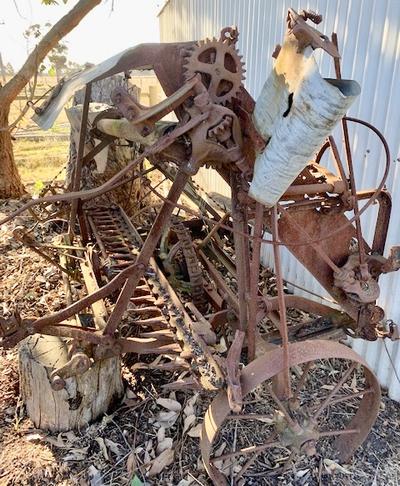Looking Back
By Leo Billington
DID YOU KNOW &/p>
In between the 1870’s and 1880’s, a land grab produced four pastoral selections – Hazelwood, Maryvale, Merton Rush and Scrubby Forest. Then known as stations, Hazelwood and Maryvale in particular gave some sense of foundation to Morwell.

In those early days, Morwell battled to form its own entity. Largely a town of cheaply constructed wooden buildings, combined with entrepreneurial ambitions of a few, and then a railway station in 1878, Morwell was basically dependant on its immediate surrounding farming areas.
The Hazelwood Station was soon fragmented by adventurous farmers exercising their pre-emptive rights.
The principle of pre-emptive right allowed licensees of runs (stations) to purchase a portion of their runs to provide some security of tenure at the minimum upset price of one pound per acre. In this way a homestead or land upon which improvements had been made could be secured.
Nearby to Morwell township – some have described it as a hamlet or village – adjacent to the former Hazelwood Pondage, John MacMillan purchased about 640 acres in the mid 1870s.
Soon after, selectors arrived to take up land – names such as Amiet, Applegate, Bolding, Northway, Alexander Forbes McDonald, Gooding, Lawless, Jones, McFarlane, Silcock, Porter, Thompson, Sanders, Shaw, Watson, Wuttrich, Bond, Firmin, Flewin, Dunbar, Woods, Porter, Nadenbousch, Kelleher and O’Hara, just to name a few, soon galvanised local municipal rolls.
Moreover, these families played leading roles in community activities – the Hazelwood North Rabbit Destruction League, rifle club, school and church, football, cricket, tennis, dances, farewells and welcomes (particularly before and after world wars), picnics (at Billys Creek), general sports meetings (similar to old style English Fairs), concerts, parties, kitchen teas, tin-kettling ( a noisy celebration of the homecoming of a newly married couple, involving the banging of pots, pans, and other metal objects; it was deemed an honour to be given a tin-kettling), local church guilds, and whatever else was deemed community.
As has been featured in previous editions of the Churchill and District News, Hazelwood North boasted a creamery, there was once a Hazelwood railway siding/station, and of course, the Hazelwood Cemetery, now celebrating its 144th year – a tad older than Morwell itself.
Not that long ago, and as generations moved on, many farms managed to remain with the original families. For instance, the Sanders family at Applegrove, The Cranwells at Chishill, Boldings at The Grange, Thompsons at El – Arish, Jones at Walnut Park, and others such as the Porters, Macreadie, and Moody. In one specific corner of Hazelwood North, small – compared to today’s huge factory farms - dairy farming families formed close ties within a broader community spirit. They looked out for each other; helped each other; shared the highs and lows of farming with each other.
In this neighbourhood corner, one would once find well-known local names – Shaw, Thompson, Porter, Northway, McDonald, Mackey, Bolding – being who remained after farms were sold or amalgamated into something larger. These days, original family numbers have dwindled from what they used to be.
Now it’s changing again. There is significant change coming. Soon. Perhaps during this year.
In her 24 page, 1976 history of Hazelwood, Mrs Kath Huffer wrote:
“As you travel through Hazelwood North (and South), do not consider it just a place to be passed on the way to Churchill, or the Jeeralangs, Morwell or Traralgon. Think of it as an area where several generations have farmed the land loved despite hardships, bad seasons, low prices and tragedies like the 1944 fires.”
Some of us who live in Hazelwood are extremely parochial, refusing to listen about negatives. There are others who now see it as purely a dormitory; rural residential complete with beautiful gardens enveloping large homes and flash cars to transport oneself to other locations for work and leisure.
As Bob Dylan famously wrote, The Times They Are A-Changin. In his words, Dylan says “The order is rapidly fadin”.
Clearing sales, or walk-in-walk-out sales will change the Hazelwood North order of things. It’s a pity discarded machinery cannot talk, for if this was possible, local history would be far greater and complete.
To conclude – Hazelwood in its entirety provided an invaluable platform upon which Morwell was able to develop.


